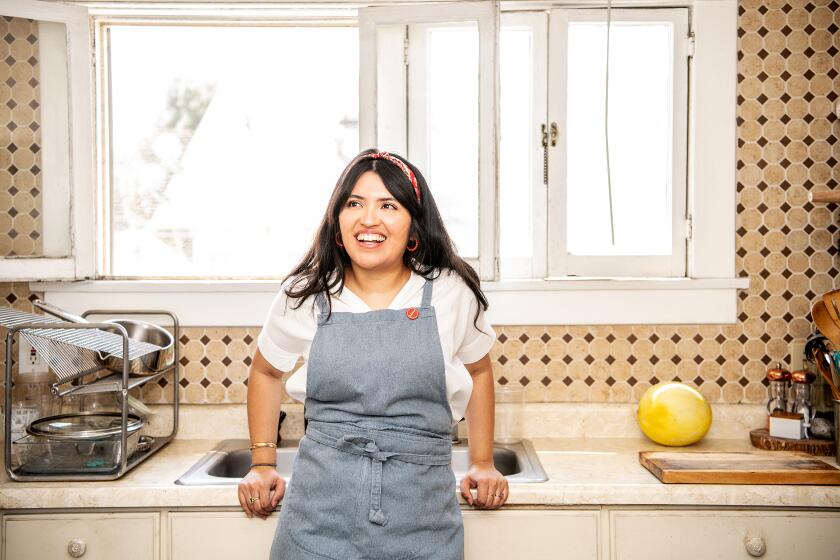Living with a growing distrust of food
- Share via
SANYA, CHINA — On holiday with my family this week on China’s resort island of Hainan, one of the first things I did after checking in to our hotel room was ask the duty manager: What kind of milk do you serve?
A few minutes later, a man named Jimmy from the hotel’s food-service staff called. Don’t worry, he said, the hotel serves only fresh milk. “We carefully check our supplier,” he said.
It may seem odd to be obsessing over dairy products, but that’s now common for my family and many others living in China. Since the first public reports of melamine-tainted baby formula three weeks ago, traces of the industrial chemical have been found in milk and other foods.
With four babies dead and more than 50,000 sickened, numerous businesses, including Starbucks and Hong Kong Disneyland, and more than a dozen countries have recalled, banned or stopped using Chinese-made dairy goods, candies and cookies.
Cellphones have been buzzing with text messages warning about this brand of ice cream or that type of chocolate. Lists and rumors have spread so persistently that Kraft Foods issued a statement last week that its Oreo cookies were safe, made with milk powder from Australia.
Many, though, remain wary. The other day, some of my expat friends took a group of children to Cold Stone Creamery in Shanghai for a treat. Before ordering, they asked where the milk came from. Told China, they walked out.
A friend here who frequently travels to Los Angeles returned to Shanghai last week with a suitcase stuffed with infant formula to give to his Chinese staff members. If you see less formula on your supermarket shelves, you’ll know why.
Though the government has tried to tone down news reports on the crisis, the topic is on everybody’s mind, if not his or her lips. My barber said he was feeding his baby formula from South Korea. My Chinese tutor, father of a 6-month-old boy, said he hoped his wife would breast-feed for as long as possible. If not, they could hire a wet nurse, though they are in high demand now.
Since moving to Shanghai in the summer of 2004, my wife and I (we have three children) have tried to be careful about what we eat and where. We avoid street vendors, red meat and unpeeled fruit. Before ordering at restaurants, we tend to check out the restroom, figuring that if it’s not clean, the kitchen probably isn’t either.
We’ve given up eating Chinese roasted eel, which my 13-year-old son really likes, because they’ve been known to contain residue of unsafe chemicals. The same with some other farm-raised seafood, vegetables and honey.
The latest scare has added a lot to my don’t-buy list. Even worse, it’s made me doubt the safety of many ordinary items.
Last week I stopped at a pastry shop, but passed up buying our favorite chocolate buns and cakes. At the local supermarket, I decided not to pick up a carton of Chinese-made juice. Instead, I reached for a more expensive foreign brand. But then I wondered, what if somebody added water to the imported juice?
Grocery shopping takes a little longer now. We check not only the ingredients on items but also where the food was packed. Our food bill is bigger. Given a choice, we’re more apt to choose foreign. We look for milk in the non-refrigerated aisles, the kind from New Zealand with a long shelf life.
As for the dairy case -- maybe in a few months.
--
More to Read
Eat your way across L.A.
Get our weekly Tasting Notes newsletter for reviews, news and more.
You may occasionally receive promotional content from the Los Angeles Times.








